ISIS claims spreading attacks
Intelligence and security agencies are scrambling to determine if Islamic State had managed the latest bloody terrorist attacks.
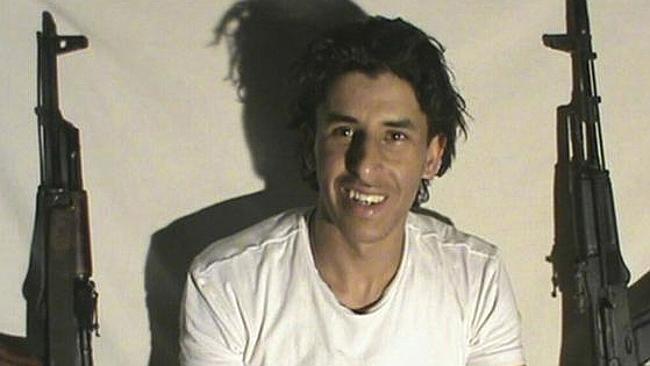
Intelligence and security agencies are scrambling to determine whether the Islamic State co-ordinated terrorist attacks that have left a bloody toll in the Middle East region and France, and raised fears of further violence to come.
Islamic State claimed responsibility for that attack, as it did a suicide bombing in a mosque in Kuwait City during Friday prayers, leaving at least 27 dead, according to local media reports. In Somalia, al-Shabaab militants slaughtered some peacekeeping soldiers.
Islamic State claimed the Tunisia attack in a statement that was distributed online and verified by SITE Intelligence Group, which monitors global jihadist activity. It identified the gunman as Abu Yehya Al Qirwani.
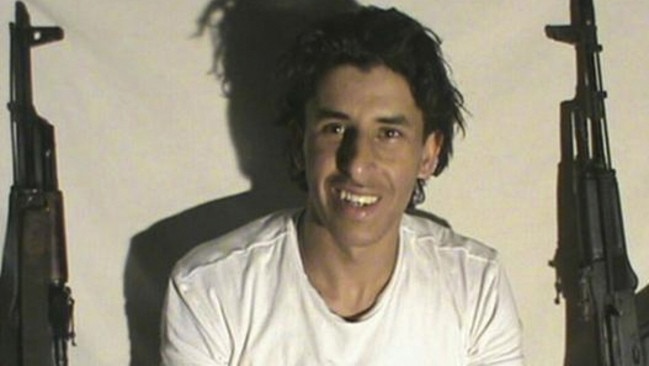
In France, at an American-owned chemical plant near the city of Lyon, a suspect decapitated his boss during an unsuccessful attempt to blow it up.
The attacks happened about the same time only days after Islamic State called for Muslims to strike at its enemies in the West and among moderate Arab states during the holy month of Ramadan.
While Islamic State or ISIS, as it is also known, has a history of inciting strikes, it has not been known before to carry out a terror campaign of such scope and complexity beyond Syria and Iraq.
Islamic State has typically relied on “lone wolves’’ or fellow travellers on the extreme fringe to make good its threats. There was no early evidence that it had co-ordinated the attacks, but if they were planned and carried out by Islamic State, the threat it poses to the West will be reassessed as taking on a dangerous new level of potency.
US Defence officials said they did not yet see indications the assaults were co-ordinated, citing a lack of warnings and no hints that Islamic State militants orchestrated all of them. More likely, US officials said, was that the attacks were inspired by an Islamic State call to arms near the one-year anniversary of it declaring a caliphate.
The attacks came days after Islamic State spokesman Abu Mohammed al-Adnani promised rewards for attacks on nonbelievers during Ramadan, which began in mid-June, renewing fears the extremist group was inspiring sympathisers and trying to touch off a sectarian war.
“You all must rush to it and be keen on waging invasion in this eminent month, and commit martyrdom in it,” Adnani said.
The attacks also came soon before the one-year anniversary of Islamic State leader Abu Bakr Al-Baghdadi’s June 29 declaration of a caliphate spanning the territory under the group’s control in Syria and Iraq after it captured the Iraqi city of Mosul. At that time, he demanded allegiance from other extremist groups.
Attacks that are simply inspired or motivated by militant extremism are more difficult to counter, US officials said.
“What this says is that soft targets will always be able to be hit,” a senior Defence official said. “We’re still pretty good at looking at networks, but it’s much harder to go after the lone wolf.”
Some European countries reacted with alarm to Friday’s events, with Spain raising its terror alert level to high from medium and Britain convening the government’s emergency response committee to further co-ordinate the fight against terrorism with other countries.
France’s President François Hollande spoke to Tunisian President Beji Caid Essebsi after the attacks and they both vowed to step up co-ordination.
German Interior Minister Thomas de Maizière said authorities were doing all they could to prevent attacks like the one in France from happening in Germany. But he warned the threat remained serious and that he “cannot guarantee that there will be no such attack in Germany”.
“These events are taking place today in Tunisia and in France, but they can happen anywhere,” British Prime Minister David Cameron said.
“We also have to deal, perhaps more important than anything, with this poisonous, radical narrative that is turning so many young minds, and we have to combat it with everything we have.”
The gruesome decapitation at the French facility in Lyon — owned by Pennsylvania-based Air Products & Chemicals Inc — and an alleged attempt to blow it up by steering a vehicle toward gas canisters on the grounds bore the hallmarks of Islamist terrorism.
The head of the suspect’s boss was affixed to a fence and framed by a pair of flags emblazoned with the shahada, an Islamic creed declaring: “There is no God but God, and Muhammad is the messenger of God.’’
France was already on high alert since January’s massacres at satirical newspaper Charlie Hebdo and a Jewish supermarket, reflecting the difficulty of repelling such small-scale attacks.
The Tunisian attack, in the Mediterranean coastal city of Sousse was the worst terror incident in the country’s history, and happened while many of the victims were sunbathing on the beach, officials said.
Security forces shot dead the assailant after he killed and injured tourists who hailed from countries including Britain, Belgium and Germany.
A WRAP ON EVENTS:
Britain in shock over Tunisia attack
Fifteen British citizens died in the attack on a Tunisian beach resort and the number “may well rise”, junior foreign minister Tobias Ellwood said last night.
He said Friday’s massacre, in which at least 38 people died, was “the most significant terrorist attack on the British people” since the London bombings on July 7, 2005.
Tunisian authorities said they had identified at least eight Britons among the 38 killed by the Islamist gunman, but Prime Minister Habib Essid said most of the dead were believed to be British.
British Prime Minister David Cameron also warned the death toll would rise. He said: “I’m afraid that the British public need to be prepared for the fact that many of those killed were British.”
As the grim process of identifying the bodies continued, travel firms began repatriating thousands of British tourists from beach resorts around the attack site near Sousse, about 140 kilometres south of Tunis.
There were about 20,000 British tourists on package holidays in Tunisia, according to ABTA, the country’s largest travel association.
Mr Cameron said the government would “do everything necessary to get people home”, and as well as providing consular assistance, had deployed police and Red Cross experts to the North African country.
Among those caught up in the massacre at the five-star Riu Imperial Marhaba Hotel, in the popular resort of Port el Kantaoui, were tourists travelling with TUI UK group operators Thomson and First Choice.
TUI sent 10 planes yesterday to repatriate about 2500 customers, and said it was cancelling all its holidays to Tunisia for the this week.
The attack is the deadliest terror incident for Britain since 52 people were killed by four suicide bombers in an attack on the London transport system on July 7, 2005.
Many papers carried the tale of 30-year-old Matthew James, from Wales, who was shot three times — in the shoulder, chest and hip — while trying to protect his fiancee, the mother of his two children. Somehow he survived.
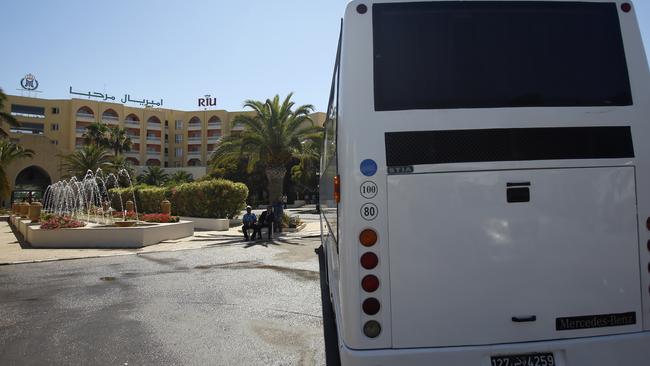
Kuwait buries attack victims as security upgraded
Kuwait was holding a mass funeral for 26 victims of a Shi’ite mosque bombing in Kuwait City claimed by the Islamic State jihadist group as the shocked oil-rich emirate tightens security.
The interior ministry said in a statement yesterday that 26 people and the suicide bomber were killed and 227 others were wounded in one of the country’s worst bombings and its first ever on a mosque.
Two of the victims in Kuwait were Iranian nationals, Iran said after condemning the atrocity and others in Tunisia and France.
“Sadly, two of our compatriots who were residents of Kuwait were martyred in the terrorist-suicide attack” on Al-Imam Al-Sadeq Mosque, Iran’s foreign ministry spokeswoman Marzieh Afkham told the official IRNA news agency.
The mosque authorities said in a statement that “Kuwait martyrs” were being laid to rest at the Shi’ite cemetery, west of the capital, last night AEST.
It said that condolences would be accepted for three days from yesterday at the Grand Mosque, the largest place of worship for Sunni Muslims, in a show of solidarity.
Kuwait’s emir, the government, parliament and political groups and clerics have said the attack was aimed at stirring sectarian strife in the emirate.
Sunni religious and political groups were quick to condemn the attack. ISIS is a radical Sunni group which considers Shi’ites, who form a third of Kuwait’s 1.3 million local population, to be heretics.
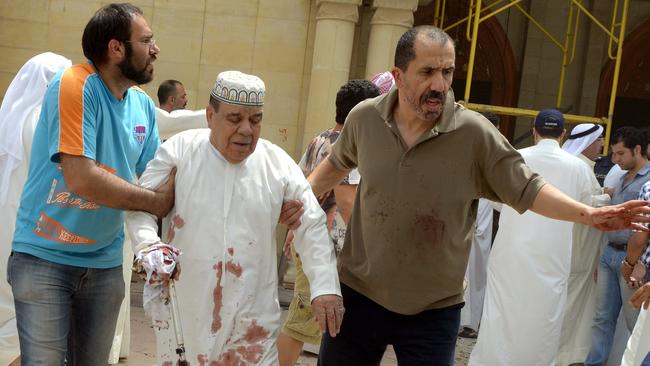
French police interrogate attack suspect
French police interrogated a suspected Islamist last night as they tried to piece together an attack in which the man put his boss’s severed head on display in the second jihadist attack to hit France in six months.
Prime Minister Manuel Valls, who cut short an official trip to South America to return home, warned that France faced more attacks and that Friday’s assault on a gas factory near the second city of Lyon would increase tensions in the country and put citizens’ resilience “to the test”.
“Jihad Nauseum” headlined France’s Liberation newspaper, warning of a new peak in the “global guerilla war launched by Islamist fanatics”.
A suspect, Yassin Salhi, 35, was arrested after causing an explosion by driving a delivery van into a warehouse containing bottles of dangerous gas and chemicals.
The prosecutor in the case said Salhi was overpowered by firefighters as he was trying to open acetone bottles in what is believed to have been an attempt to cause a larger explosion.
The firefighters then discovered the decapitated body of his 54-year-old boss Herve Cornara — who ran a delivery firm — near the car, along with a knife.
The victim’s head was pinned to a nearby fence.
Interior Minister Bernard Cazeneuve said Salhi, a married father of three, had been investigated for links to radical Salafists in Lyon, but was not identified as having participated in terrorist activities and did not have a criminal record.
Speaking after a ministerial meeting with President Hollande, Mr Cazeneuve vowed the government would “continue to work relentlessly” against terrorism.
France is on high alert over hundreds of citizens who have gone to wage jihad in Iraq and Syria, as well as those involved in recruitment or radicalisation online.
Last week, France passed a controversial new spying law granting sweeping powers to snoop on citizens.
Beheadings have in recent times become a trademark of the Islamic State group in Iraq and Syria.
Salhi was described by a co-worker as “a wolf in sheep’s clothing” to RTL radio, adding that Salhi had spoken to him about Islamic State -- “not to try recruit me for anything but simply to ask my opinion”.
The prosecutor said Salhi’s wife, sister and another man had also been taken into custody.
A second man is being investigated on terrorism-related charges but any link to the attack is not clear, and there was no indication that Salhi had an accomplice with him.
Earlier reports:
with The Wall Street Journal and AFP


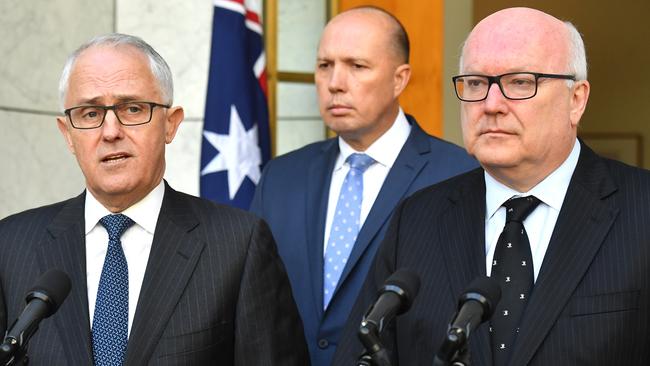
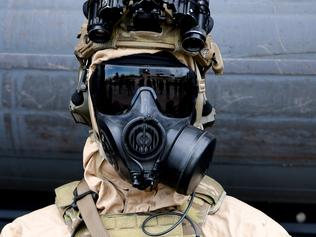
To join the conversation, please log in. Don't have an account? Register
Join the conversation, you are commenting as Logout